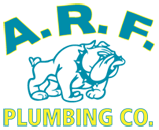Who wants to think about their septic system? But, keeping a mental track of the history and status is important to taking action and staying ahead of the game. Calling in a professional every so often to keep things running smoothly is key. Here are a number of good habits and tips that can help extend your septic system’s life, and improve its problem-free operation.
The Basics
 We have to begin by repeating something you’ve (hopefully) heard a hundred times before: the toilet is not the trash. Water, bodily waste, and toilet paper these are the only things that should be flushed. Anything else, and you run the risk of clogged drains, tank damage, and/or drain field damage. One of the simplest and most beneficial things you can do is to put a trash bin near the toilet for all those other things that need to be disposed of. If you have frequent guests or a forgetful housemate, you might even put a note up to remind them.
We have to begin by repeating something you’ve (hopefully) heard a hundred times before: the toilet is not the trash. Water, bodily waste, and toilet paper these are the only things that should be flushed. Anything else, and you run the risk of clogged drains, tank damage, and/or drain field damage. One of the simplest and most beneficial things you can do is to put a trash bin near the toilet for all those other things that need to be disposed of. If you have frequent guests or a forgetful housemate, you might even put a note up to remind them.
Also, toilet paper that’s too thick can take up unnecessary space in the septic tank, and without frequent pumping, can even lead to backups. If you aren’t sure if yours is septic-safe, put a handful in a jar of water and give it a shake – if it dissolves readily, you should be good to go.
Water Use
Because septic drains and systems treat wastewater on-site water conservation also, becomes important – the tank can only hold so much, and the drain field can only be so big. Overuse of the water will overfill the tank, cutting down the time allowed for the separation of solids. This can cause more solid waste entering the drain field, leading to clogs and failure.
To cut down on water, install as many water-efficient fixtures as you can, and don’t run heavy users like dishwashers and washing machines at the same time.
“Waste” Management
Septic systems are resilient, but only to a point. Keep the bulk of this waste out of your septic system and in the trash, to unessesary clogs. What about other items that gets sent down the drain? A constant flow of hair, food scraps, chemicals and FOG (fats, oils, and grease) can lead to clogging of your septic drain system faster than you’d think. FOG is always bad for pipes, will increase scum and sludge in the tank, and could lead to drain field problems.
Small strainer or screens can be put over your drains! These inexpensive items are beyond simple and do a great job at catching world coffee grounds, food scraps and hair out of the tank to occasionally saving a bolt or ring. Did you know that washing machines spit out lint? This can present problems for septic systems when the lint – especially from synthetic materials – makes its way into your drain field, leading to clogs and potential system failures. Installing a washing machine lint filter to avoid any issues is a great idea.
While doing your laundry, strong cleaners, bleach, or antibacterial products end up down your drain and into you septic system. These chemicals can kill the bacteria in your system. Use biodegradable soaps and cleaners, and try not to reach for the “hard stuff” too often.
What about additives and treatments for your system? As we note in “How a Septic System Works”, “there are tons of additives out there, but in a properly functioning system, all the bacteria that’s needed to process waste is already there. Bacteria that aid our own digestion travel with waste into the tank, where they feed and reproduce. With each flush of solid waste, new colonies are added!” That being said, additives using bacteria and/or enzymes won’t harm the system.
Septic drain cleaning and tank Pumping
Beyond these tips and “best practices”, there’s an even more important maintenance task that should not and cannot be avoided: pumping the accumulated scum and sludge out of the tank. Sludge can really add up in a septic tank, and will result in system failure without regular pumpings. How often? It depends on the household and the system. The average is around 3-5 years, but some tanks need pumping every year, and others have gone 15+. The only way to know is to have your system regularly inspected by a Broward septic drain professional.
Don’t try to do it yourself…
Bonus tip: Keep you maintenance info handy. Keep records of inspections, maintenance and repairs
Drain Field Maintenance
Regular tank pumping and these good habits should be enough to prevent one of the most major septic problems: a clogged – and failed – drain field. Most solid waste is processed in-tank but, some does make it to the field. Bacteria and other organisms in the ground can usually make quick work of any that comes through. But when a tank needs to be pumped and isn’t, sludge builds up. Incoming wastewater moves through faster, and carries solids with it into the field. Distribution pipes and even the soil can become clogged, preventing water from percolating. Puddles, bad smells, wet spots, and particularly lush plant growth over the field could indicate such a problem. From inside the house a slow or gurgling drain that can’t be fixed with a plunger or snake might also suggest a drain field issue.
Besides making sure the tank gets pumped, there’s not much else that the drain field requires. There are a few things to avoid, however. Like trees. The great bane of plumbing, tree roots always find their way into pipes, and savor the wealth of nutrients and water found in a drain field. Trees need to be at least 30 feet away, and with some varieties, much further. Do your research before planting: understand the tree’s root system and growth pattern. The only things that should be planted over a drain field are grass and herbaceous plants. How about some wildflowers?
Additionally, be sure that discharges from pumps and rain gutter downspouts are directed away from the field to prevent over-saturation. And it may seem obvious, but you shouldn’t drive over a drain field, park on it, or set up heavy equipment on it. The weight compacts the soil, reducing oxygen for the organisms in the ground and making it harder for water to flow. Likewise, heavy foot traffic (human or otherwise) should be avoided.
